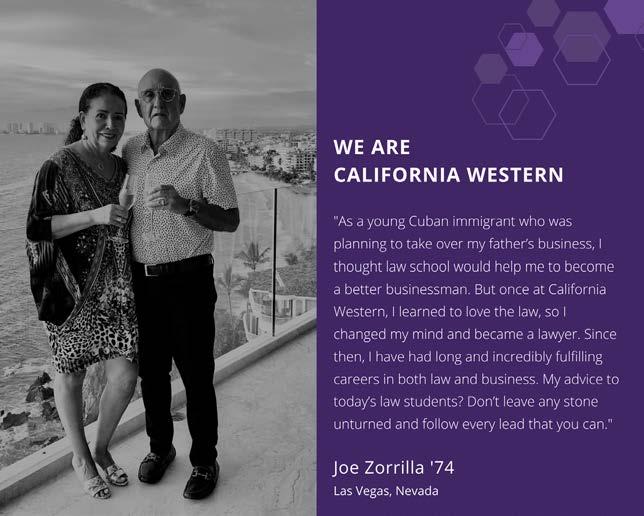
1 minute read
The Consequences of Dobbs
the consequences
of Dobbs
Advertisement
On June 24, 2022, the Supreme Court issued its decision in Dobbs v. Jackson Women’s Health Organization, reversing decades of precedent by overturning Roe v. Wade and Planned Parenthood v. Casey.
California Western Constitutional Law professors William Aceves, Jessica Fink, and Glenn Smith discussed the consequences of this momentous decision in a panel discussion on July 7.
Moderated by Dean Sean Scott, the panel discussed the background to the case, the Court’s treatment of precedent, the immediate impact of Dobbs in the states, and how other unenumerated rights are now potentially at risk, including the right to marry and even the right to contraception.
“It is important to recognize that even under the framework of Roe v. Wade and Planned Parenthood v. Casey, states always had the authority, subject to narrow constraints, to regulate and even prohibit abortions in the third trimester.” Professor William Aceves “…his [Chief Justice Roberts] opinion is the least honest one here, at least with respect to stare decisis. He talks a great game about how the Court could have upheld this law without overruling the other cases, but he is also talking about cutting the heart out of these prior cases.” Professor Jessica Fink “…ultimately, how you answer the question of Dobbs’ reach depends on how much you trust the majority’s and Justice Kavanaugh’s concurring disclaimers of any intent to put other implied privacy rights at risk.” Professor Glenn Smith


To listen to the entire discussion and the insightful opinions of our expert panel, follow this link:
The Consequences of Dobbs









